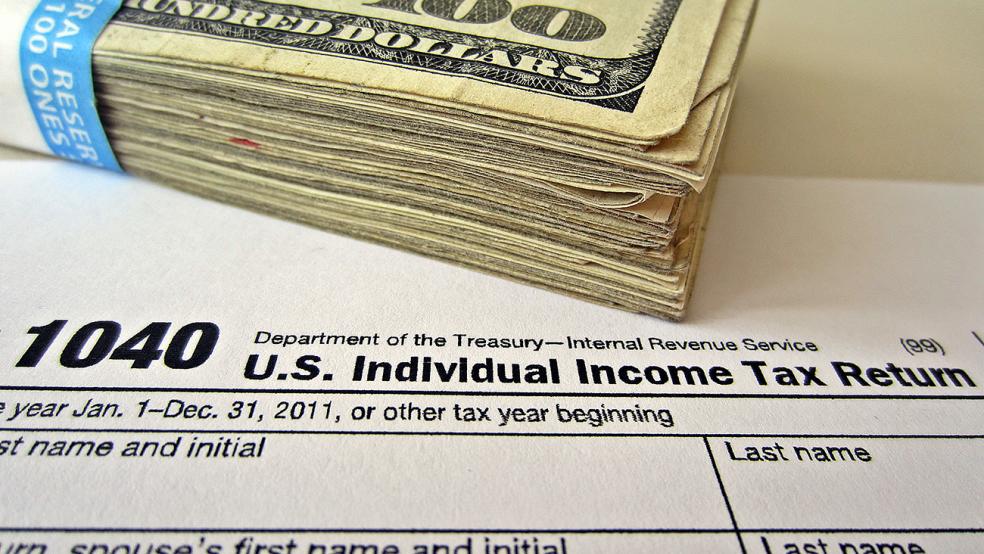The deadline to file your taxes for 2016 is just around the corner.
This year’s April 18 deadline gives all taxpayers a few extra days to complete the task, but even with that extra time, not everyone’s going to be able to file on time.
Last year, just over 10 percent of taxpayers filed their taxes after the deadline.
Related: The Best and Worst States for Taxes in 2017
If you’re among those who are going to miss the deadline, you’ll need to file for an extension with the IRS. Here’s what you need to know:
1. Anyone can file an extension.
The IRS allows any taxpayer, regardless of income, to get a six-month extension on sending in their tax returns by filing a Form 4868. Obtaining an extension, which this year gives you until October 18, is free, and you don’t need to state a reason for needing extra time.
“It’s unbelievably easy to get an extension on your taxes,” says Glenn Brown, senior tax research analyst at the Tax Institute at H&R Block. “It’s one of the few tax forms that’s not confusing.”
Some taxpayers get extra time automatically. Americans living and working abroad get two additional months to file their taxes. Servicemen and women and others serving in combat zones typically don’t have to file or pay their taxes until six months’ after they’ve left the combat zone. Victims of a natural disaster may also get an automatic extension on their taxes.
Most states also allow tax filers to request a six-month extension. Check out the rules for your state here.
2. If you can file on time, you should.
There are valid reasons to request an extension on your taxes, including incomplete or inaccurate records or a life tragedy that makes it tough to deal with the paperwork. If you need professional help for complicated taxes and you’re just starting now to work with a tax preparer who’s swamped, he may have you file an extension. In most cases, however, if you’re able to file your taxes on time, there’s little incentive not to do so. “Usually if you’re just missing one thing, with a little bit of legwork — some phone calls and due diligence — you can get it done on time,” says Marc Steber, chief tax officer at Jackson Hewitt.
Related: The IRS Just Invited More Tax Cheating by the Public
One potential exception: Self-employed workers who file an extension have until the new deadline to contribute retirement savings to a SEP-IRA or a solo 401(k), and have it count toward their 2016 returns. If you’re a freelancer with the cash to do so, it might make sense for you to file your returns later.
3. You still need to spend some time now on tax calculations.
Just because you get an extra few months to file your taxes, doesn’t mean that you have additional time to pay them. “Even if you get an extension, there’s still work involved to make sure that you’re paying the correct amount along with your extension form,” says Paul Jacobs, chief investment officer at Palisades Hudson Financial Group.
Use a tax estimator like the one at TurboTax to figure out how much you owe and send your payment in along with your extension request. Most Americans are unaware of this rule. Nearly 60 percent of taxpayers recently surveyed by NerdWallet mistakenly believed that filing for an extension would allow them to delay tax payments.
If you pay less than 90 percent of what you ultimately owe, the IRS will impose penalties on the unpaid amount. Money that you don’t pay will accrue penalties of 0.5 percent per month plus interest up to 25 percent of the balance. If you owe money and don’t file for more than two months, you’ll owe a minimum penalty of $205.
Related: Here’s Why You Owe the IRS So Much in Taxes This Year
If you have a good reason for needing more time and can demonstrate personal hardship, call the IRS. You may also qualify for a 60 or 120-day extension on payment, in which you’ll still owe penalties and interest but at a lower rate.
If you owe less than $50,000, you can also apply for a payment agreement, which can stretch out payments for as long as six years.
4. Your refund will be on hold.
If you’re expecting a tax refund, you won’t get it until after your taxes are filed. Three-quarters of taxpayers get a refund after filing, and the IRS typically issues refunds within a few weeks of receiving your return. That means that the sooner you get your return in, the sooner the money will be in your bank account.
There’s no penalty for filing late when the IRS owes you a refund, and the agency will give you a three-year grace period to claim your money. The IRS is holding more than $1 billion in refunds for an estimated 1 million taxpayers who still haven’t filed their 2013 tax returns.
Related: Tax-Free Shopping on Amazon Is Over — With This One Big Exception
5. Not filing the extension will cost you if you owe.
The penalty for failing to file got an extension is much more onerous than the penalty for not paying. If you owe money and don’t file for an extension, you’ll owe a ‘failure to file’ penalty of 5 percent of your tax bill per month up to 25 percent of the balance.
“No one should go past April 18 without filing their return or filing for an extension,” says Troy Lewis, a CPA in Draper, Utah. “The consequences for failing to do so are just too severe.”





